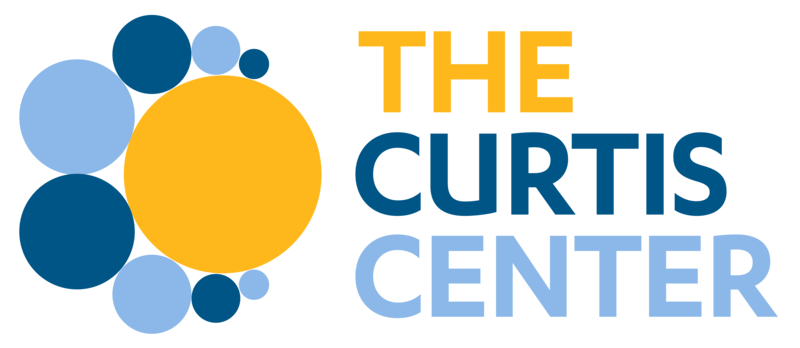Partnership Goals:
The Lynwood Unified School District (LUSD) in Lynwood, California, is an urban K–12 public school district located in southeastern Los Angeles County. LUSD serves over 11,000 students across 12 elementary schools, 2 middle schools, and 3 high schools.
The Curtis Center X LUSD partnership began in 2019 at the request of Christine Arostigue-Manson, Director of Secondary Instruction. The goal of the partnership was to strengthen secondary mathematics instruction by increasing teacher content and pedagogical knowledge, and improving student engagement in inquiry-based learning. The initial year of the partnership (2019-2020) focused on supporting LUSD middle and high school mathematics teachers. Subsequent partnership years (2020-2023) focused on supporting high school mathematics teachers.
Partnership Activities:
Over the 2019-2020 academic year:
- The Curtis Center met with LUSD’s middle and high school teachers for a total of 15 days to engage them in inquiry-based, standards-aligned model lessons.
- The Curtis Center provided 12 days of on-site instructional coaching in LUSD mathematics classrooms, providing non-evaluative observational feedback focused on the Standards of Mathematical Practice.
Over the 2020-2021 academic year:
- The Curtis Center met with LUSD’s high school teachers for a total of 9 days to engage them in inquiry-based, standards-aligned model lessons.
- The Curtis Center Mathematics Specialists provided 10 days of instructional coaching in LUSD mathematics classrooms, providing non-evaluative observational feedback focused on the Standards of Mathematical Practice.
- The Curtis Center met with LUSD’s Algebra 1, Geometry, and Algebra 2 teachers for a total of 12 days of scope and sequence work.
- The Curtis Center facilitated a 1-day conference for LUSD secondary site administrators to deepen their understanding of the Standards of Mathematical Practice and to learn how to use an observation protocol to provide non-evaluative feedback during classroom visitations.
Over the 2021-2022 academic year:
- The Curtis Center met with LUSD’s middle and high school teachers for a total of 9 days to engage them in inquiry-based, standards-aligned model lessons.
- The Curtis Center met with LUSD’s Algebra 1, Geometry, and Algebra 2 teachers for 3 days to create “5 x 5 Common Assessment Matrices” composed of 25 or more CCSS Math Content Standards aligned to each course’s scope and sequence.
- The Curtis Center met with LUSD’s Algebra 1, Geometry, and Algebra 2 teachers to for 9 days to collaboratively build 5 common assessments for each course based on the 5 x 5 Common Assessment Matrices.
- The Curtis Center built instructional unit plans for LUSD’s Algebra 1, Geometry, and Algebra 2 courses.
- The Curtis Center facilitated a LUSD middle and high school articulation to ensure the middle school lays the foundation for high school mathematics for students to have a smooth transition to Grade 9.
- The Curtis Center facilitated a 1-day conference for LUSD secondary site administrators to engage them in activities that can be used as tools to support the mathematics faculty.
- 25 LUSD teachers attended The Curtis Center Annual Mathematics and Teaching Conference.
Over the 2022-2023 academic year:
- The Curtis Center provided 6 days of instructional coaching to LUSD high school teachers focused on the implementation, analysis, and adaptation of the district’s common assessments.
Results:
Products:
- Scope and Sequence documents for Algebra 1, Geometry, and Algebra 2
- Instructional Plans for Algebra 1, Geometry, and Algebra 2
- 15 total Common Assessments for Algebra 1, Geometry, and Algebra 2
- 5 x 5 Common Assessment Matrices for Algebra 1, Geometry, and Algebra 2
A 2021 report from third-party evaluator The Mark found the following:
Teacher Gains:
- Increased ability to identify and classify mathematical concepts
- Increased capacity to make meaningful connections across mathematical ideas in instruction
- Improved quality of feedback provided to students
Qualitative data collected during the partnership indicated that teachers appreciated the alignment of professional learning with upcoming instructional content; the relevance, rigor, and classroom applicability of model lessons; and the opportunity to receive non-evaluative feedback from The Curtis Center Mathematics Specialists. Teachers also valued the emphasis on student thinking and engagement and the practical support provided during classroom implementation.
Student Gains:
- Increased engagement and interaction during inquiry-based lessons
- Improved understanding of mathematical connections
